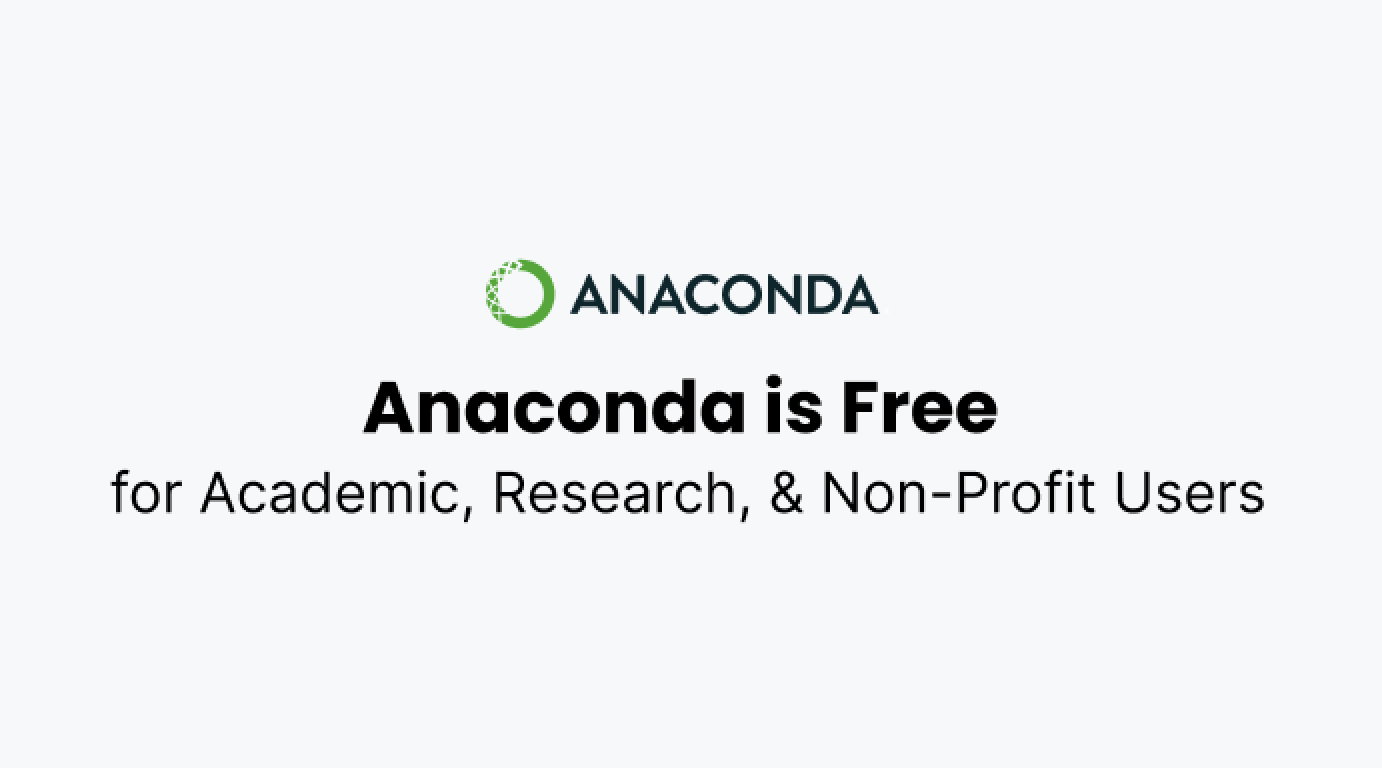At Anaconda, we’re committed to advancing AI with open source at scale. As part of this commitment, we’re revamping our Terms of Service to clarify that eligible academic institutions, researchers, and non-profit organizations can continue to access Anaconda for free.
We recognize that our previous Terms of Service update in 2024 created confusion. After gathering considerable valuable community feedback, we’re implementing clear policies that better support open source innovation while maintaining our sustainable business model.
The full Terms of Service changes will be announced in late May, taking effect July 1st, 2025. Here’s what you need to know now:
Academic Institution Policy
Use of Anaconda’s tools by academic institutions and researchers helps nourish key innovation, and we’re committed to supporting this vital ecosystem. As part of our updated Terms of Service, we’re rolling out an Academic Policy that confirms organizations meeting the definition of an Eligible Academic Institution will be able to continue to use Anaconda for free. We’ve also launched Anaconda for Education, a dedicated offering designed to support the needs we’ve heard directly from educators and students. With these changes, we’re simplifying the process to provide you with confidence and clarity about your eligibility. We value our academic community tremendously and want to ensure there are clear, straightforward paths for you to confidently use our platform without cost barriers.
Who qualifies: Higher education organizations that are accredited
How to participate:
- Individual academics: Sign up with your .edu email for a free account and follow the prompted instructions for free access to the features included with Anaconda’s Starter Plan
- Institutions: Contact us for an Academic Organization Agreement covering organization-wide use
Complex usage of Anaconda, such as mirroring or widespread scaled enterprise deployment use cases, might require special licensing documentation from Anaconda. We will share more in the future about how to contact Anaconda regarding these kinds of use cases.
Research & Non-Profit Policy
At Anaconda, we’re committed to furthering innovative research and important contributions by researchers and non-profits. As part of our updated Terms of Service, we’re introducing a new Eligible Research & Non-Profit Institution Policy that provides clear eligibility requirements confirming that Anaconda remains free for qualifying organizations.
Who qualifies:
- 501(c)(3) or equivalent non-profit organizations with annual revenue under $1B
- Research organizations primarily conducting, funding, or sharing research
Not eligible:
- 501(c)(3) or equivalent non-profit organizations with annual revenue over $1B
- Direct government/intergovernmental entities
- For-profit corporations operating research programs
- Private foundations
- Government-funded national laboratories
- Defense and military research organizations
How to participate:
- Individual researchers/non-profit workers: Sign up for our Free Plan
- Institutions: Contact us for a Non-Profit & Research Organization Agreement
Looking Ahead: Our Commitment to Innovation
We understand that large-scale initiatives require consistency and reliability. After holding multiple community meetings with representatives from these sectors, we’ve developed these policies with their input to better address their concerns.
Eligible Research & Non-Profit Institutions can continue widespread usage of Anaconda via our Free Plan. Any usage beyond the Free Plan, such as mirroring or widespread virtual deployment use cases, may require institutions to reach out to Anaconda for approval and special documentation.
While Ineligible Institutions aren’t included in the free usage policy, they may still qualify for special discounted pricing in furtherance of Anaconda’s mission to support innovation and research.
We’re proud to be a trusted partner in the critical innovation happening across research and non-profit communities. We look forward to sharing more details about these policies when we announce the broader Terms of Service updates in late May, which will become effective on July 1st, 2025.

